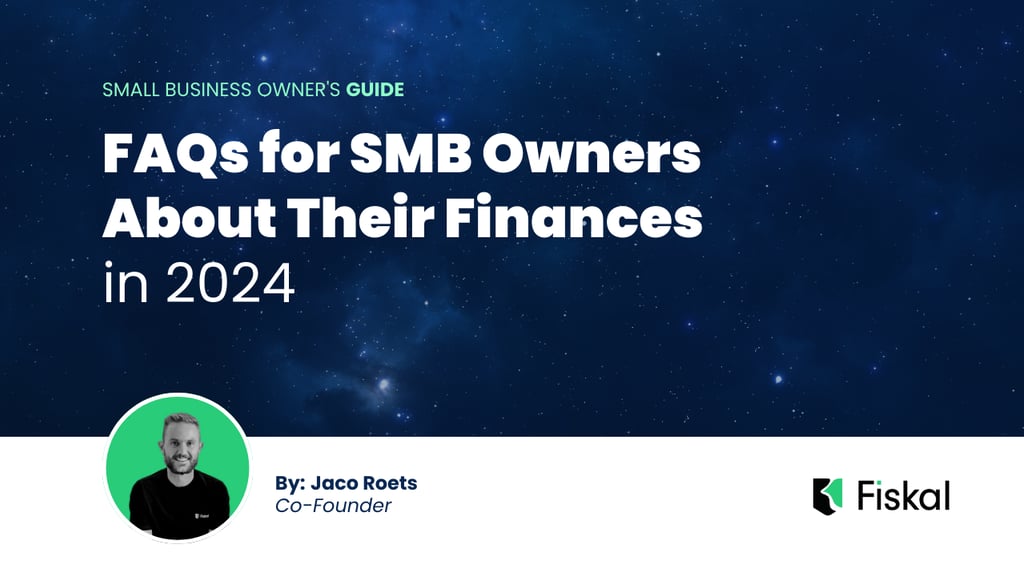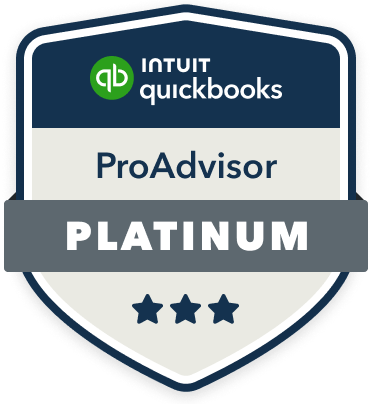FAQs for SMB Owners About Their Finances in 2024
Running a small or medium-sized business (SMB) comes with numerous financial challenges and opportunities. With the rapid evolution of technology, changing market dynamics and new financial regulations, SMB owners need to stay informed to manage their finances effectively. Here, we address some frequently asked questions (FAQs) that SMB owners might have about their finances in 2024.
SYSTEMS AND SOFTWARE


1. What are the key financial trends SMBs should be aware of in 2024?
Answer: Several trends are shaping the financial landscape for SMBs in 2024:
Digital Payments: The shift towards digital payments continues to accelerate. Integrating mobile payment solutions and e-commerce capabilities is essential.
Blockchain and Cryptocurrencies: More SMBs are exploring blockchain for secure transactions and considering cryptocurrencies for payments.
Sustainability Investments: Investors and consumers are increasingly focusing on sustainability. SMBs may benefit from eco-friendly practices and green financing options.
AI and Automation: Automation tools for accounting, payroll, and financial analytics are becoming more accessible and affordable, helping SMBs streamline operations and reduce costs.
2. How can SMBs improve their access to capital?
Answer: Accessing capital remains a critical concern for SMBs. Here are some strategies:
Explore Alternative Financing: Beyond traditional bank loans, consider options like crowdfunding, peer-to-peer lending, and venture capital.
Government Grants and Programs: Look for grants and loan programs designed to support SMBs, especially those promoting innovation or located in underserved areas.
Improve Financial Health: Maintain a strong credit score, manage debts effectively and ensure accurate financial records to present a compelling case to lenders.
3. What financial technologies (fintech) should SMBs adopt?
Answer: Adopting the right fintech tools can significantly enhance financial management:
Cloud Accounting Software: Solutions like QuickBooks Online or Xero offer real-time financial tracking and reporting.
Mobile Payment Systems: Tools like Square and PayPal Here facilitate easy and secure transactions.
Expense Management Apps: Apps such as Expensify and Concur simplify tracking and managing business expenses.
Automated Invoicing and Payroll: Services like Gusto and FreshBooks automate payroll and invoicing, reducing administrative burdens and minimizing errors.
4. How should SMBs handle financial planning and forecasting?
Answer: Effective financial planning and forecasting are crucial for business growth:
Regular Financial Reviews: Conduct monthly or quarterly financial reviews to assess performance against your budget and adjust forecasts as needed.
Scenario Planning: Develop multiple financial scenarios (best case, worst case, most likely) to prepare for uncertainties.
Professional Advice: Consider hiring a financial advisor or accountant who can provide expert guidance tailored to your business.
5. What are the best practices for managing cash flow?
Answer: Managing cash flow effectively ensures your business remains solvent and can meet its obligations:
Monitor Cash Flow Regularly: Use tools to track cash flow on a daily or weekly basis.
Invoice Promptly: Send invoices immediately after services are rendered or products are delivered and follow up on late payments.
Control Expenses: Regularly review expenses and identify areas where costs can be reduced without compromising quality or efficiency.
Maintain a Cash Reserve: Aim to have a cash reserve that can cover at least three to six months of operating expenses.
6. How can SMBs protect themselves against financial fraud?
Answer: Protecting against financial fraud is critical in an increasingly digital world:
Implement Strong Cybersecurity Measures: Invest in cybersecurity tools and training to protect sensitive financial information.
Regular Audits: Conduct regular internal and external audits to detect any irregularities or suspicious activities.
Segregation of Duties: Ensure that financial responsibilities are divided among multiple employees to reduce the risk of fraud.
7. What tax changes should SMBs be aware of in 2024?
Answer: Tax regulations can change frequently, so staying updated is vital:
Federal and State Tax Updates: Keep informed about any changes in federal and state tax laws that might affect your business.
Deductions and Credits: Explore available deductions and credits, such as those for research and development, sustainability initiatives and employee benefits.
Professional Tax Advice: Consider working with a tax professional to navigate complex tax regulations and optimize your tax strategy.
8. How can SMBs balance growth with financial stability?
Answer: Balancing growth with financial stability requires strategic planning:
Invest Wisely: Focus on investments that offer clear returns and align with your long-term business goals.
Manage Debt: Use debt strategically to finance growth, but avoid over-leveraging, which can jeopardize financial stability.
Diversify Revenue Streams: Reduce risk by diversifying your products, services or markets to ensure a steady revenue flow.
Conclusion
Navigating the financial landscape in 2024 requires SMB owners to be proactive, informed, and strategic. By leveraging the right technologies, planning effectively and staying abreast of financial trends and regulations, SMBs can secure their financial health and drive sustainable growth. Whether you’re looking to improve cash flow, access capital or protect against fraud, understanding these FAQs can help you make informed decisions and set your business up for success.












